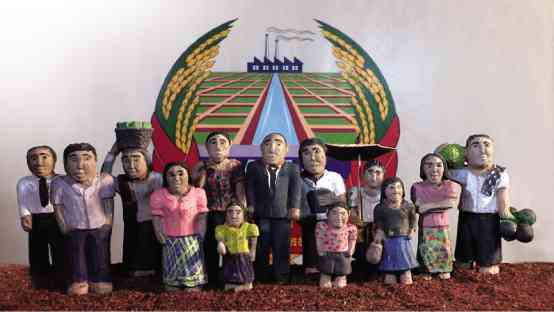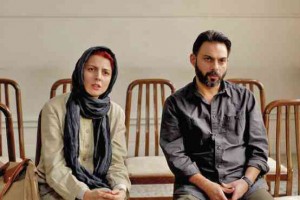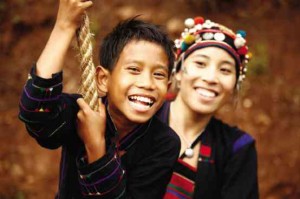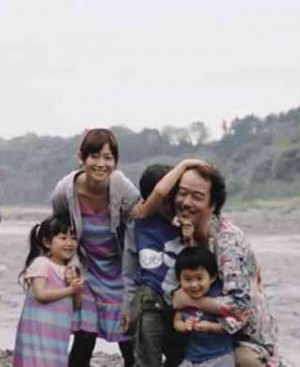Region’s best films showcased in five-day fest
Organizers of the second Asia On Screen film festival believe that cinema is an effective, and entertaining, way to bridge the cultural divide among the different nations in this vast region.
Suyin Liu-Lee, executive director of Asia Society Philippines, clearly understands the power of cinema. “There is nothing more visceral than the movies,” she told the Inquirer.
“As an art form, film allows us to tackle ideas and issues that are otherwise taboo, challenging and difficult.”
As an educational institution, Asia Society Philippines aims “to strengthen relationships, deepen understanding and bridge differences” by organizing fora, seminars and cultural events, she related. Understanding the similarities and differences among our Asian neighbors, she said, would hopefully “bring us one step closer to compromise, resolution and appreciation.”
With this second film festival, which follows the inaugural edition in 2012, Asia On Screen will showcase 13 of the region’s most awarded films in a five-day event to be held at Shang Cineplex of Shangri-La Plaza Mall, Mandaluyong City, starting tomorrow and ending on May 12.
Carefully curated “We did research, consulted experts and came up with a carefully curated lineup that gives us a glimpse of Asia,”
she said.
“We originally wanted to limit it to Southeast Asia, but decided to include films from Asian countries with more mature film industries to make the roster more comprehensive.”
Among the multiple award winners on the list are Hirokazu Koreeda’s “Like Father, Like Son” (Japan), Rithy Panh’s “The Missing Picture” (Cambodia) and Asghar Farhadi’s “A Separation” (Iran). “Like Father, Like Son” and “The Missing Picture” premiered and won at Cannes in 2013. Koreeda’s film won the Jury Prize and Ecumenical Jury Prize-Special Mention in the Main Competition; Panh’s film, the top prize in the Un Certain Regard section.
Koreeda’s film won 19 awards all over the world, including best film and director at the Asia-Pacific Film Festival.
“A Separation” is the winning-est film in the lineup, with at least 82 trophies, including best foreign language film from the Academy Awards, Independent Spirit and Golden Globes.
Farhadi’s film also won the Golden Bear, Ecumenical Jury Prize and best actor and actress (for its ensemble) at the Berlin International Film Festival in 2011.
Another widely praised film, Kim Mordaunt’s “The Rocket” (Australia-Laos), won 28 citations since its premiere at the 2013 Berlin fest where it brought home the Amnesty International Prize, best debut film and Crystal Bear (Generation K-plus best film).
It also won the audience award, best narrative feature and best actor (Sitthiphon Disamoe) at the Tribeca Film Festival in New York. Rare Lao film “The Rocket,” remarked Richard Rodgers (counselor for political and public affairs of the Australian Embassy), provides a rare opportunity for Filipino cineastes to watch a film set in Laos.
It is vital to learn more about Laos, he said, especially since it is not only close to the Philippines geographically, but also “shares the same development issues.”
“The Rocket,” Rodgers said, highlights the fact that Australia has a globally competitive film industry that can support coproductions with Asian countries.
China’s entry, Feng Xiaogang’s “Back to 1942,” won 24 awards, including best cinematography at the Asia-Pacific Screen Awards and best film and visual effects at the Beijing Film Festival in 2013. “Back to 1942” features Oscar-winning actor Adrien Brody.
China’s other entry, Xue Xiaolu’s “Ocean Heaven,” top-bills Jet Li in a nonaction, dramatic role.
The 2010 film won favorite actor at the Beijing Student Film Festival and outstanding new actor at the Huabiao Film Awards for Zhang Wen (who played Li’s autistic son).
PH’s entries The Philippines’ entry, Loy Arcenas’ “Niño,” clinched 14 honors, including best supporting actress (for Shamaine Centenera-Buencamino) at the Asian Film Awards and the New Currents Award at the Busan International Film Festival in 2011; and the Emile Guimet and Special Mention honors at the Vesoul Asian Film Festival in 2012.
The Philippines’ other entry, Milo Sogueco’s “Mariquina” won best supporting actress for Barbie Forteza at the Cinemalaya last year and competed at the Busan and Osaka Asian Film Festival. Indonesia’s entry, Ifa Isfansyah’s “Sang Penari (The Dancer)” was nominated for best actress (Prisia Nasution) at the Asia-Pacific Film Festival in 2012.
Award winners, too India’s two entries are award winners, too. Aamir Khan’s 2007 movie “Taare Zameen Par (Like Stars on Earth)” won best film and director at the Apsara Film Producers Awards in 2009 and swept the Filmfare and Screen Weekly Awards in 2008. Gyan Correa’s “The Good Road” won the Golden Lotus at the National Film Awards in 2013.
South Korea has two entries, both critically acclaimed. Kyu-dong Min’s “All About My Wife” won best actress (Su-jeong Lim) and supporting actor (Seung-ryong Ryu) at the Blue Dragon Awards in 2012.
Byeong-gil Jeong’s 2012 thriller “Confession of Murder” won best new director at the Grand Bell Awards and best screenplay at the Baek Sang Art Awards in 2013.



















